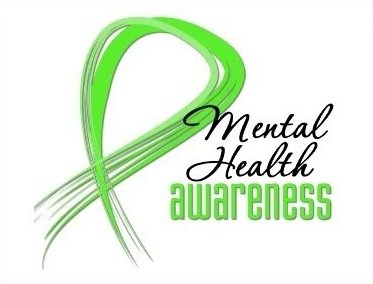Month: April 2015
Thank you to Cincinnati Public Radio and Mark Heyne for helping to grow awareness of mental illness and addiction. Click here to read more and listen to the broadcast.
Thank you to Cincinnati Public Radio and Mark Heyne for helping to grow awareness of mental illness and addiction. Click here to read more and listen to the broadcast.
Addressing mental health before Stage 4—this year’s theme for May is Mental Health Month—calls attention to the importance addressing mental health symptoms early, identifying potential underlying diseases, and planning an appropriate course of action on a path towards overall health. Mental health conditions should be treated long before they reach the most critical points in the disease process—efore Stage 4.
“When we think about cancer, heart disease, or diabetes, we don’t wait years to treat them,” said Paul E. Keck, Jr., MD, President and CEO of Lindner Center of HOPE. “We start before Stage 4—we begin with prevention. So why don’t we do the same for individuals who are dealing with potentially serious mental illness?
“This Mental Health Month, we are encouraging everyone to learn the signs, ask for help if needed, address symptoms early, and plan an appropriate course of action on a path towards overall health.”
One of the quickest and easiest ways to determine whether you are experiencing symptoms of a mental health condition is to take a mental health screening. Mental Health America has online screening tools for depression, anxiety, bipolar disorder, and post-traumatic stress disorder at mhascreening.org. MHA’s goal is to get every American screened and aware of their mental health, so they can address it #B4Stage4.
MHA has also developed a series of fact sheets available on its website (www.mentalhealthamerica.net/may) on realizing the critical importance of addressing mental health early, recognizing the risk factors and signs of mental illness and how and where to get help when needed.
May is Mental Health Month was started 66 years ago by Mental Health America, to raise awareness about mental health conditions and the importance of good mental health for everyone.
“When feelings and emotions get overwhelming, it’s hard to know what to do,” Dr. Keck said. “Sometimes, these early symptoms might not ever become serious. Like a cough, they often go away on their own, and are nothing to fear. But sometimes, they are a sign of something more severe and shouldn’t be ignored. Taking a screening is the first step to protect your mental health, and addressing mental illness before Stage 4.”
Research shows that by ignoring symptoms, we lose ten years in which we could intervene in order to change people’s lives for the better. During most of these years most people still have supports that allow them to succeed—home, family, friends, school, and work. Intervening effectively during early stages of mental illness can save lives and change the trajectories of people living with mental illnesses.
“Prevention, early identification and intervention, and integrated services work,” concluded Dr. Keck. “When you address symptoms before Stage 4, people can often recover quickly, and live full and productive lives.”
For more information on May is Mental Health Month, visit Mental Health America’s website at www.mentalhealthamerica.net/may.
 When we think about cancer, heart disease, or diabetes, we don’t wait years to treat them. We start before Stage4—we begin with prevention. When people are in the first stage of those diseases, and are beginning to show signs of symptoms like a persistent cough, high blood pressure, or high blood sugar, we try immediately to reverse these symptoms. We don’t ignore them. In fact, we develop a plan of action to reverse and sometimes stop the progression of the disease.
When we think about cancer, heart disease, or diabetes, we don’t wait years to treat them. We start before Stage4—we begin with prevention. When people are in the first stage of those diseases, and are beginning to show signs of symptoms like a persistent cough, high blood pressure, or high blood sugar, we try immediately to reverse these symptoms. We don’t ignore them. In fact, we develop a plan of action to reverse and sometimes stop the progression of the disease.
So why aren’t we doing the same for individuals who are dealing with potentially serious mental illness?
When you or someone close to you starts to experience the early warning signs of mental illness, knowing what the risk factors and symptoms are will help to catch them early. Often times, family and friends are the first to step in to support a person through these early stages. Experiencing symptoms such as loss of sleep, feeling tired for no reason, feeling low, feeling anxious, or hearing voices, shouldn’t be ignored or brushed aside in the hopes that they go away. Like other diseases, we need to address these symptoms early, identify the underlying disease, and plan an appropriate course of action on a path towards overall health. Mental health conditions should be addressed long before they reach the most critical points in the disease process—Before Stage 4.
Many people do not seek treatment in the early stages of mental illnesses because they don’t recognize the symptoms. Up to 84% of the time between the first signs of mental illness and first treatment is spent not recognizing the symptoms.
Mental Health America’s screening tools can help. Taken online at www.mhascreening.org, a screening is an anonymous, free and private way to learn about your mental health and see if you are showing warning signs of a mental illness. A screening only takes a few minutes, and after you are finished you will be given information about the next steps you should take based on the results. A screening is not a diagnosis, but it can be a helpful tool for starting a conversation with your doctor or a loved one about your mental health.
This May is Mental Health Month; Lindner Center of HOPE is raising awareness of the important role mental health plays in our lives and encouraging members of the community to learn more about their own mental health and to take action immediately if they are experiencing symptoms of a mental illness.
Mental illnesses are not only common, they are treatable. There is a wide variety of treatment options for mental illnesses ranging from talk therapy to medication to peer support, and it may take some time for a person to find the right treatment or combination of treatments that works best for them. But when they do, the results can be truly amazing and life changing. Lindner Center of HOPE wants to help people learn what they can do both to protect their mental health and know the signs of mental illness #B4Stage4.
It’s up to all of us to know the signs and take action so that mental illnesses can be caught early and treated, and we can live up to our full potential. We know that intervening effectively during early stages of mental illness can save lives and change the trajectories of people living with mental illnesses. Be aware of your mental health and get screened #B4Stage4 today!

Over 320 people were in attendance at an annual spring fundraiser for Lindner Center of HOPE on Tuesday, April 21, 2015 to be inspired by keynote speaker Liza Long.
Long, author of the nationally recognized essay, “I Am Adam Lanza’s Mother”, was the keynote speaker at Showering You With HOPE, luncheon and auction, on April 21, 2015 in Hyde Park.
The title of Ms. Long’s keynote speech was “From Talk to Action: Ending Stigma, Finding HOPE.”
Ms. Long is a writer, educator, mental health advocate, and mother of four. One of her children suffers with bipolar disorder. In 2007, she started writing a blog called The Anarchist Soccer Mom, where she first published her December 2012 essay, “I Am Adam Lanza’s Mother” which discussed her personal tragedy as it intersected with the school shooting in Newtown, Connecticut. Since her essay published, Ms. Long has become a national speaker and contributor to several publications, and has also written a book, “The Price of Silence: A Mom’s Perspective on Mental Illness.” Read more about Liza Long at lizalong.com.
Showering You With HOPE was the 7th annual spring luncheon presented by High Hope’s, Lindner Center of HOPE’s fundraising auxiliary. Proceeds from the event benefit patients at Lindner Center of HOPE.
Event co-chairs were Anne Ilyinsky and Marcie Warrington.
Photos by Robert Flischel
City leaders were joined by leaders from the Lindner Center of HOPE and Assurex Health, both significant contributors to research, innovation, education and health care delivery in the field of mental health, at the April 13 City Council Meeting to commemorate national Mental Health Month (May) and Community Mental Health Education Day (May 3). The City issued proclamations acknowledging both events.
The City of Mason has partnered with the Lindner Center of HOPE, one of the premier mental health centers in the nation, and Assurex Health, a rapidly-growing, innovative precision medicine company, to support their ongoing growth and development. This partnership is a result of the City of Mason’s commitment to fostering a culture of physical and mental health and well-being – from the people who work and live in the city, to the companies in Mason’s thriving Innovation and Biohealth corridor.
The Lindner Center of HOPE is hosting an Education Day on May 3
The proclamation for May 3 being Community Mental Health Education Day coincides with the Lindner Center of HOPE hosting an Education Day event on May 3. This half-day event is a community workshop that will focus on mental illness and addiction. Community-wide education is critical to the mission of giving hope and restoration to those who suffer from mental health issues, as well as their family and caregivers. Providing an Education Day on May 3 to the Greater Cincinnati population is a collaborative effort to enhance awareness of mental illness and addiction, and break down cultural stigma. Registration information is available at lindnercenterofhope.org/educationday or by contacting Kelly Hines at [email protected]; 513-536-0328.